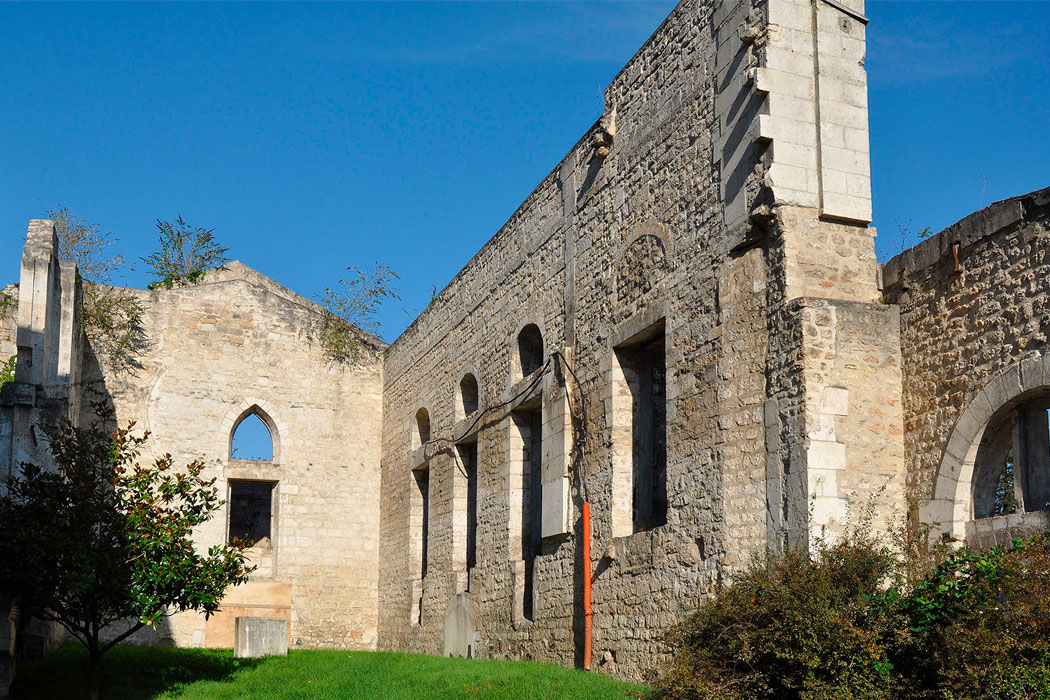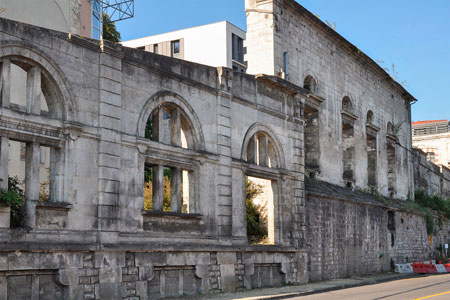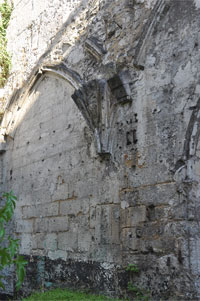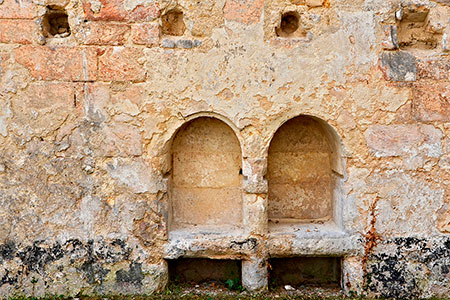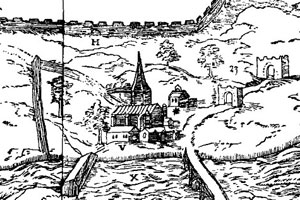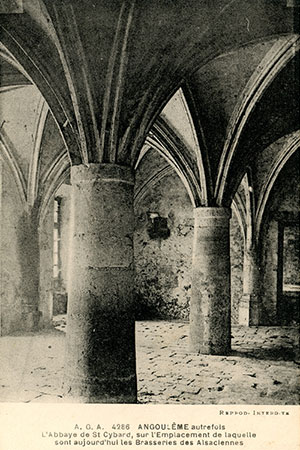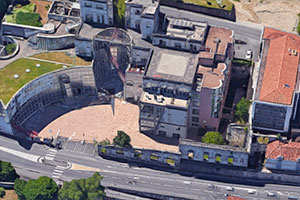The Abbey of Saint-Cybard was founded near the tomb of Saint Cybard (or Eparchius) of Angoulême, who arrived in the area around the year 542 to live as a hermit, and died there in 581. Around him gathered a group of followers, forming a cenobitic community that was the precursor to the monastery. Gregory of Tours already mentions a church in that early period, a fact confirmed by archaeological findings.
The first documented reference does not appear until 852, in a charter from Charles the Bald in which the king confirmed certain possessions to the monastery. In this early phase, Saint-Cybard was home to a community of canons linked to the diocese of Angoulême. In 863, following a Norman raid, the monastery was destroyed, but it was soon rebuilt with the support of the counts of Angoulême. During this period, the chronicler Adémar de Chabannes (c. 989-1034) was a monk at Saint-Cybard. At the end of the 11th century, the abbey was placed under the authority of the Cluniac monastery of Saint-Jean d’Angély (Charente-Maritime) and was subsequently rebuilt.
Like many other monasteries in the region, it suffered during the Hundred Years’ War. By 1448, it was already in a state of ruin. At the end of the 15th century, Saint-Cybard had declined and was governed by commendatory abbots. Between 1562 and 1568, it was damaged again during the Wars of Religion. At the end of that century, the monastic complex was reorganised: the church, which had been destroyed, was functionally replaced by the former refectory. The monastery, however, never fully recovered and continued to decline; by the mid-18th century, there were even proposals to secularise it.
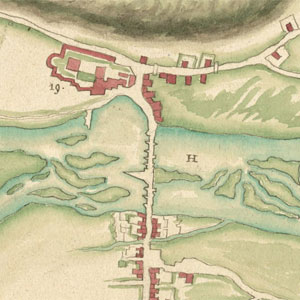
The abbey at Plan de la Ville et des Fauxbourgs d'Angoulesme (17th century)
Bibliothèque nationale de France
Despite this, the abbey remained active until the Revolution. In 1791, after the departure of the last three monks, the complex was sold and used for various industrial purposes, including a brewery that remained in operation until 1966. A paper mill also operated there. Since 1989, it has housed the Centre National de la Bande Dessinée et de l’Image, which has led to archaeological studies and preservation efforts for the remaining structures.
- BEAUNIER, Dom (1910). Abbayes et prieurés de l'ancienne France. Vol. 3: Auch, Bordeaux. Abbaye de Ligugé
- BELLEFOREST, François de (1575). La Cosmographie universelle de tout le monde. París : Chesneau
- BOISSAVIT-CAMUS, Brigitte (1988). Angoulême (Charente). Ancienne abbaye Saint-Cybard. Archéologie médiévale, vol. 18
- BOISSAVIT-CAMUS, Brigitte; i altres (1991). Saint-Cybard. De l’abbaye au CNBDI. Histoire d’un site
- CHAILLOU, Mélanie (2008). Angoulême - Abbaye Saint-Cybard. Archéologie de la France
- ESMEIN, A. (1906). L’histoire et la légende de Saint Cybard. Bulletin et mémoires de la Société archéologique et historique de la Charente, vol 6
- GEORGE, J. (1898). Topographie historique d'Angoulême. Bulletin et mémoires de la Société archéologique et historique de la Charente. Vol. 8
- LEFRANCQ, Paul (1930). Cartulaire de l’abbaye de Saint-Cybard. Angoulême: I. Ouvrière
- NANGLARD, Jean (1893). Pouillé historique du diocèse d'Angoulême, 2. Bulletin et mémoires de la Société archéologique et historique de la Charente, vol. 3
- SAINT-MAUR, Congregació de (1720). Gallia Christiana in provincias ecclesiasticas distributa. Vol. 2. París: Typographia Regia
